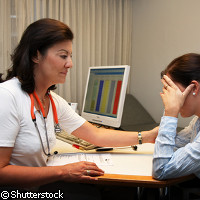Cancer cure rates in Europe on the up, study reveals
Growing numbers of Europeans are being cured of cancer and can look forward to enjoying the same life expectancy as people who have never had the disease, according to a pan-European study published in a special issue of the European Journal of Cancer. However, survival rates vary widely by country, region, age and sex, the research reveals. 'Europe faces a major challenge in reducing these inequalities,' the authors write. Many studies of cancer survival look at the number of patients who are still alive five years after diagnosis. However, for certain cancers, such as breast and prostate cancer, many patients who survive for five years eventually go on to die as a result of the disease. In this latest study, the researchers split the patients into two groups: those who die of their cancer, and those who are cured of the disease and are likely to die of other causes. The scientists then compared survival rates for two periods: 1998 to 1990 and 1997 to1999. Overall, survival rates were up in the second period compared to the first period. For example, the proportion of patients cured of lung cancer rose from 6% to 8%, while colorectal cancer survival rates rose from 42% to 49%. However, wide disparities remain in the cancer survival rates in different countries. For example, for all cancers combined, Iceland topped the survival table for men, with 47% surviving, while the greatest number of women cured (59%) were from France and Finland. At the other end of the table, in Poland, just 21% of men and 38% of women were cured of their disease. 'For all cancers combined, the very wide range in the proportion of patients cured in the contributing countries, ranging from 21% to 47% in men and 38% to 59% in women, also depends on the varying frequency across Europe of the different cancers,' explained the guest editor of the special issue of the journal, Dr Riccardo Capocaccia of Italy's National Centre for Epidemiology, Surveillance and Health Promotion. She continued, 'This proportion is, therefore, also an indicator of Europe-wide variations in cancer control, because it reflects progress in diagnosis and treatment, as well as success in the prevention of the most fatal cancers.' There were also differences for individual cancers; in the Czech Republic, Denmark and Poland, less than 5% of lung cancer patients survived, while in France and Spain, survival rates exceeded 10%.For breast cancer, over 70% of patients were cured in Spain, France, Finland and Sweden, a figure that falls to below 60% in the Czech Republic, Poland and Slovenia. 'Part of this difference has been attributed to the introduction of breast cancer screening from the mid-1990s in several western European countries. If this is true, the implication is that early diagnosis saves the lives of women with breast cancer by rendering their disease more curable,' commented Dr Capocaccia. Sex was another factor influencing survival rates, which were found to be higher in women than in men for most of the cancers examined, the study revealed. According to Dr Capocaccia, 'This suggests that sex hormone patterns may play a role in the consistently higher survival seen for women.' The elderly (those aged 55 to 99 years) face a much higher risk of dying than younger cancer patients. The study revealed that the five-year survival rates for all cancers in children and young people are increasing. The findings are a result of the EUROCARE study, which has been running since 1990 and draws on data from 93 cancer registries in 23 European countries. Professor Alexander Eggermont, president of ECCO - the European CanCer Organisation - welcomed the findings, saying: 'EUROCARE provides essential information on the pattern of survival of cancer patients across Europe. Without this information it would be impossible to assess whether improvements in cancer diagnosis, treatment and care are actually having an effect on the outcome for patients. It also tells us which cancers and which areas of Europe need to be targeted for further research and investment.'



